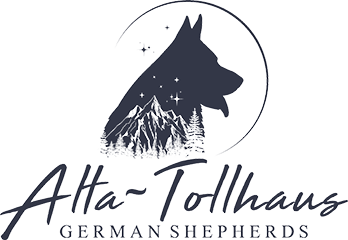The plot thickens!!!!
By Dr. Karen Becker: http://healthypets.mercola.com/sites/healthypets/archive/2012/07/25/no-to-raw-feeding.aspx
Next week on August 2 or 3, 2012, the AVMA (American Veterinary Medical Association) will vote to adopt a policy against raw feeding of cats and dogs.
The resolution to be voted on, titled POLICY ON RAW OR UNDERCOOKED ANIMAL-SOURCE PROTEIN IN CAT AND DOG DIETS, takes the following position:
“The AVMA discourages the feeding to cats and dogs of any animal-source protein that has not first been subjected to a process to eliminate pathogens because of the risk of illness to cats and dogs as well as humans.”
The full resolution can be found in this document, page 12.
On July 18th, the AVMA posted a blog entry titled The Facts on AVMA’s Proposed Policy on Raw Pet Food Diets. The post is intended to clear up “misinformation” the AVMA feels is in the public domain concerning the policy.
In my view, the July 18 post doesn’t clear up a thing.
In order to clear up “misinformation” about their raw feeding policy, the AVMA must be forthcoming about what’s really behind it. Why a formal resolution against all forms of raw or “undercooked” pet food? And why now?
The only type of pet food and treats under near-constant recall for potentially deadly contaminants is the processed stuff. Year in and year out, it is mass marketed processed pet food and treats that cause illness and death in dogs, cats and people.
So why the sudden need for a formal policy banning a type of pet food that is not and has never been the cause of product recalls, illness or death?
AVMA → Delta Society → Purina Petcare
At the end of the formal AVMA policy linked above, there is a statement about the resolution which says in part:
“At its spring 2011 meeting, the Council on Public Health and Regulatory Veterinary Medicine (CPHRVM), drafted a new policy to address an issue brought to its attention by Animal Welfare Division staff and the Delta Society (a non-profit organization that works with companion animals for animal assisted therapy, service animals, and other volunteers). Having a policy specific to raw diets and associated public health concerns, the Delta Society inquired if AVMA had a related policy.”
More than a few raw feeders and others interested in the issue of species-appropriate pet nutrition are questioning the Delta Society (now called Pet Partners) link.
I published an article two years ago when Delta Society banned raw fed pets — and any pet living in a home with raw fed pets — from its highly regarded Pet Partners therapy program. It was an unanticipated move that stunned Delta’s membership, affiliates and raw pet food enthusiasts across the U.S.
In researching possible explanations for this ill-advised decision, I uncovered a few clues:
- On the home page of the Delta Society (Pet Partners) website you will find the following sentiment: “Thank you to our incredible partner, the passionate pet lovers at Purina.” It’s a safe bet the Purina logo is prominently featured on other Delta Society/Pet Partners marketing materials as well.
- On the Delta Society’s Board of Directors, you’ll find Purina’s Marketing Director.
- In the Delta Society Medical Advisory Group, you’ll find member Dr. Deborah S. Greco, DVM, PhD, DACVIM, of Nestle Purina Petcare in St. Louis, Missouri.
- In 2008, Purina gave the Delta Society $400,000 – the largest grant ever received by the organization.
- On the Purina One website, you’ll find their marketing position on “Why You Shouldn’t Feed Your Pet Raw Meat”.
Clearly, Delta Society/Pet Partners is influenced by Nestle Purina. And according to the AVMA, Delta Society is one of two organizations that brought the “issue” of raw feeding to their attention, prompting the about-to-be-voted-on formal resolution against raw feeding.
Pet Nutrition: The New “5th Vital Assessment” According to the American Animal Hospital Association (AAHA)
Coincidentally, I also wrote an article earlier this year on the AAHA’s move to add a fifth vital assessment for veterinarians in determining the health status of cat and dog patients. (The first four assessments are temperature, cardio function, respiratory health, and pain.)
On the surface, this seems like an absolutely excellent initiative.
However, while I certainly agree species-appropriate nutrition is fundamentally important to the health of all animals, I am dismayed that a major manufacturer of “therapeutic” pet food (Hill’s) provided an educational grant to print the AAHA Nutritional Assessment Guidelines for Dogs and Cats in several languages.
I think focus in the traditional veterinary community on companion animal nutrition is long overdue. But it is troubling to me that each nutrition-related initiative — whether it’s a new “vital assessment” or a policy on raw feeding – seems to come with strings attached to a major manufacturer of processed pet food.
Sometimes the strings are visible, as in the case of the Delta Society’s sponsor, Purina, and the Hill’s grant to the AAHA. Other times the strings are less obvious, as in the case of the AVMA’s illogical and oddly timed resolution against raw feeding.
Possible Outcomes of the AVMA Policy Against Raw Feeding
The AVMA resolution, if passed, will not “ban” the sale of commercial raw pet food diets. To quote the AVMA: “… this proposed policy would be an AVMA policy if approved, not state or federal law. The AVMA cannot, and will not, regulate what pet owners choose to feed their pets. If you already feed raw food to your pet, that’s your choice.”
But here’s the problem. The vast majority of traditionally trained veterinarians in the U.S. do not study nutrition. Most vets learn about companion animal nutrition from a handful of self-interested pet food manufacturers who are a constant presence at vet schools and clinics around the country. The AVMA’s membership is veterinarians who for the most part are far behind the curve in understanding species-appropriate nutrition for pets.
Most pet owners take their vet’s recommendation when it comes to feeding their cat or dog. A formal resolution by veterinarians’ own professional organization against raw feeding will seal the deal for many vets who will, with a clear conscience, continue recommending processed pet food diets to cat and dog owners.
A Possible “Chilling Effect” on Commercial Raw Pet Food Companies
Another concern among raw feeders and other proponents of raw food for pets is that pet food companies producing commercial raw diets will cave under the anti-raw pressure and begin to use heat or high pressure pasteurization (HPP) processes. In fact, some already have
Here’s how one raw feeder, Dr. Amy Nesselrodt, a DVM and member of the AVMA expresses her concerns:
“Those of us who feed raw want to feed raw. We do not believe heated food nor High Pressure Pasteurized (HPP) food is the same as raw. We believe (and the evidence e.g. the pet, has shown) that raw, truly raw with enzymes and probiotics, is beneficial to our pets. As a busy professional, I want the freedom to choose commercially available prepared raw food. Truly raw food.
“Those of us who support raw feeding (and have seen the health benefits of doing so) don’t want more regulation of raw, limiting our choices and driving up prices. AVMA’s passing of this resolution would likely cause a chain reaction of FDA creating more regulation. Regulation would drive up commercially prepared raw food prices and make it cost prohibitive.”
Dr. Nesselrodt also makes the point that raw pet food manufacturers are regulated the same way kibble manufacturers are. Commercial raw pet food is tested and subject to recall just as processed pet food is, yet the recalls have all involved processed kibble and treats.
Nesselrodt asks a valid question of the AVMA: “Why discriminate against commercial raw?”
Another possible outcome of the AVMA policy against raw feeding is it could put some commercial raw pet food companies out of business. These companies are mostly small operators committed to providing high quality food for pets. Many will close up shop before compromising the principles of healthy nutrition for cats and dogs upon which their businesses were built.
What You Can Do
If you feel the AVMA’s proposed policy against raw feeding has the potential to negatively affect the health of your pet or your freedom to choose how to feed your dog or cat, let your voice be heard before the August 2/3 vote.
To contact the AVMA …
- Headquarters:
1931 North Meacham Road, Suite 100
Schaumburg, IL 60173-4360
Phone: 800.248.2862
Fax: 847.925.1329
- Governmental Relations Division:
1910 Sunderland Place, NW
Washington, DC 20036-1642
Phone: 800.321.1473
Fax: 202.842.4360
- Email: avmainfo@avma.org (include in the subject line: AVMA Council on Public Health and Regulatory Veterinary Medicine)
- The AVMA’s July 18th blog post is also open for comments.


It’s called follow the money. Raw feeding must really be hurting the commercial dog food business.
Since there have been so many kibble recalls, I’ve noticed a lot more raw-feeding companies starting up. I guess the commercial kibble companies have noticed it too. Nothing about the health or well being of the dog—it is just about the money.